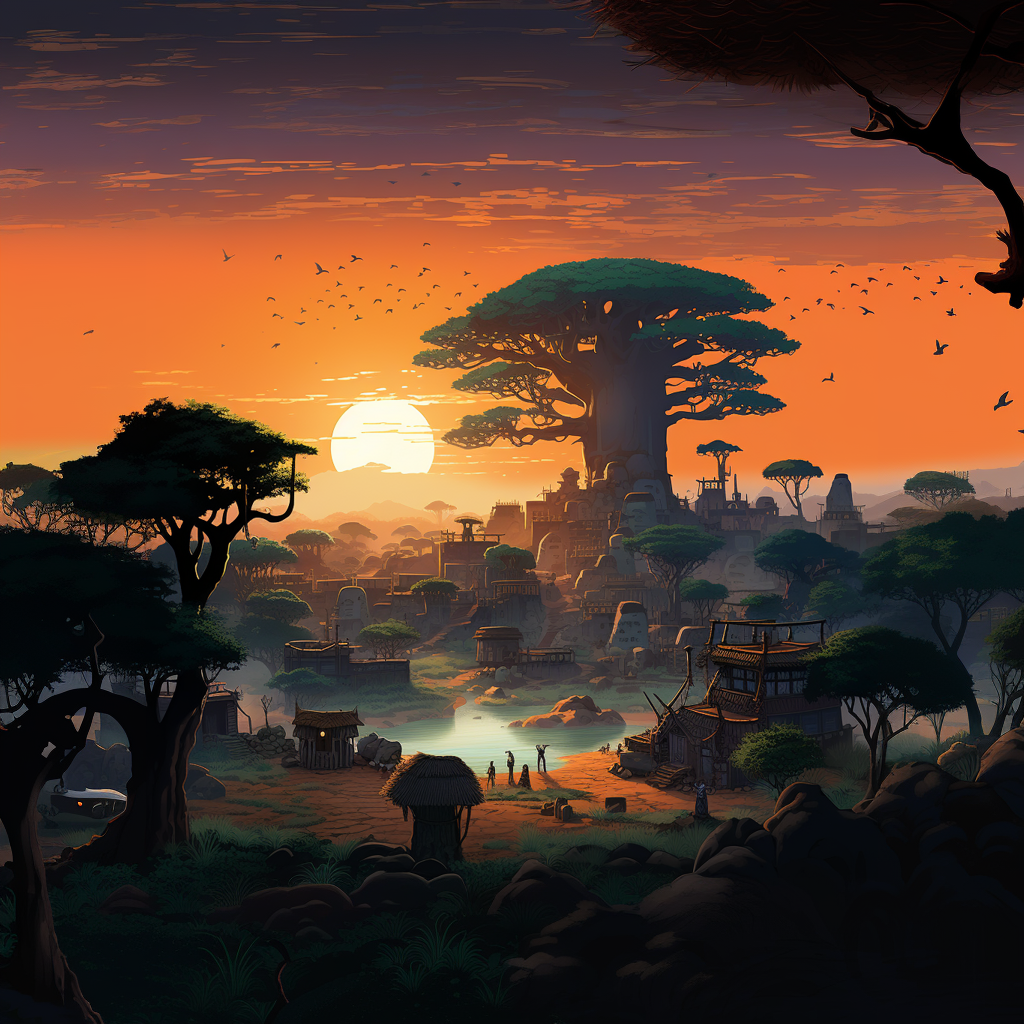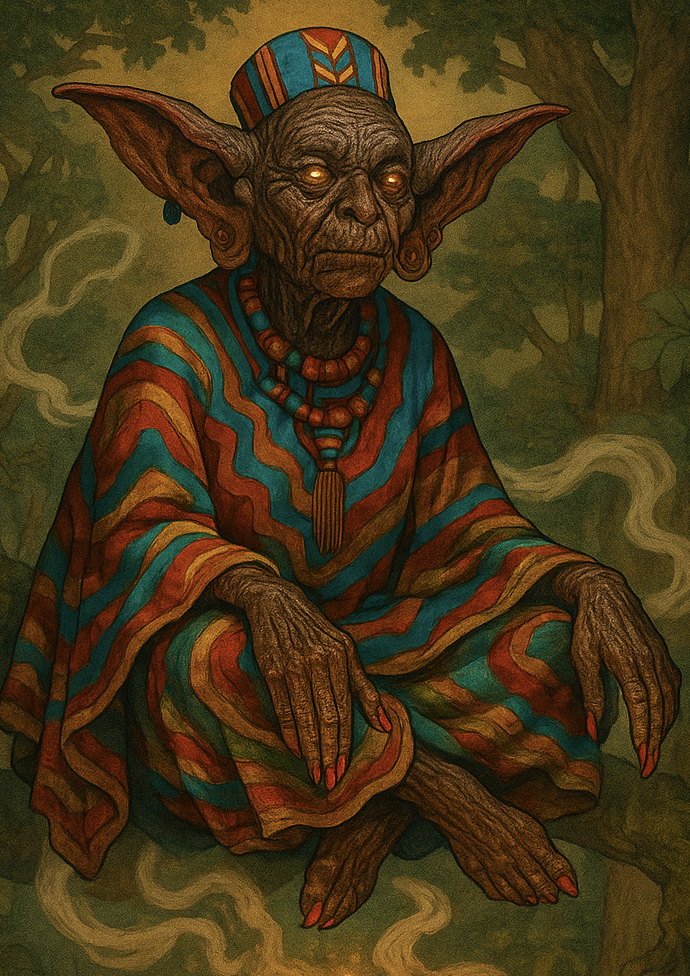Orisha
The Orisha are revered ancestral spirits in the land of Ummania, known for their deep connection to the mystical forest of the Daru, a place where the veil between the spirit world and the material plane wears thin. Unlike deities or demons, the Orisha are not worshipped for power or feared for wrath—they are honored as guardians of memory, guides of conscience, and keepers of lineage.
These spirits appear in various forms—sometimes humanoid, sometimes beast-like, and often abstract—depending on the nature of the message or the needs of the one receiving the vision. Their presence is not bound to time or place but is strongly linked to the forest and to ritual acts of remembrance.
Appearance and Manifestation
Orisha do not conform to a single form. Some manifest as luminous-eyed elders with bark-like skin, others as shifting shadows in firelight, or as ethereal animals bearing features of the dead. Their voices are said to echo like wind through trees or water in bowls, soft but resonant, layered with many tones.
Each encounter is highly personal, and most Ummanians can recall stories passed down through their families of an Orisha appearing to a relative in a time of great need or decision.
The Forest of the Daru
The Daru is considered sacred ground—the cradle of Ummanian ancestry and a liminal realm where the Orisha dwell. Trees within the Daru are said to carry the memories of those who have passed, and spirits can be heard whispering through their leaves. Those who walk its shaded paths in meditation or grief may find themselves face-to-face with an Orisha, particularly near ancient altars or groves.
While anyone may enter the Daru, only those with reverence in their hearts and clarity of purpose are believed to be acknowledged by the spirits.
Altars and Veneration
Though the Orisha do not require worship, they are venerated through the tending of altars, typically shaped like animals tied to Ummanian cultural symbolism:
These altars often hold small offerings: fruits, kola nuts, cloth, incense, or carved tokens. Smoke offerings are common, believed to carry prayers upward into the spirit realm. During Oji ceremonies and other rites of passage, a portion is always given to the Orisha in recognition of those who came before.
Role in Ummanian Society
The Orisha serve as intermediaries, teachers, and witnesses, never forcing fate or bending will. They are revered for their restraint and their rare but poignant interventions. Many Ummanian legal, spiritual, and familial decisions are preceded by invocation of the Orisha—asking not for approval, but for remembrance, perspective, and clarity.
In particular, elder Orisha—those spirits who once served as clan leaders, healers, or warriors—are called upon during times of societal transformation, war, or spiritual crisis.
Encounters and Omens
To see an Orisha is not necessarily a portent of death or blessing. It is often understood as a moment of reckoning or inheritance—a time when one must reflect on who they are, whose footsteps they follow, and what stories they carry forward.
Signs of an Orisha’s approach may include:
Sudden stillness of the forest
Whispering winds with voices
Fireflies gathering in unusual patterns
Dreams of ancestral figures or beasts




Comments